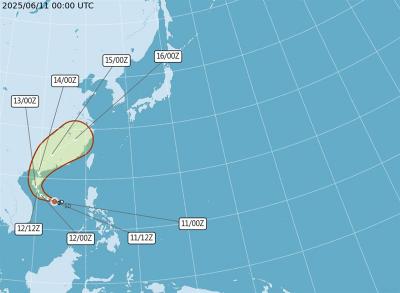The percentage of children who were given their mother’s last name based on a parental agreement has reached a record high of 2 percent, Ministry of the Interior data showed.
The data showed that 98.09 percent of children born between January 2013 and October were given their father’s last name, while only 1.91 percent inherited the mother’s last name.
However, this year alone, the percentage of children who were given their mother’s surname based on a parental agreement surpassed 2 percent for the first time since a law codifying patriarchal naming was amended nine years ago.
Article 1059 of the Civil Code was amended in 2007 with the aim of achieving gender equality, stipulating that children should be given their father’s last name except in special circumstances.
According to the amendment, parents should agree in writing about whether a child should assume the father’s or mother’s last name.
In addition to a written agreement, a child’s surname can be determined by a unilateral decision of either of the parents under certain circumstances, by a court ruling or by drawing lots at a household registration office, and alternatively, a child can be given their guardian’s surname according to the amendment and Article 49 of the Household Registration Act (戶籍法).
A total of 793,688 babies were born between 2013 and October, and 95.45 percent of them, or 757,567, were given their father’s last name, while 4.39 percent, or 34,866, were given their mother’s surname, according to ministry data.
In terms of how family names were passed on to the children, 92.7 percent, or 771,581, of the babies were given a surname after their parents reached an agreement, while 2.5 percent, or 19,936, were given a surname through a unilateral decision by one of the parents.
Among children whose last name was given unilaterally, 97.3 percent assumed their mother’s last name, and 2.5 percent assumed their father’s surname.
In cases where a surname was given unilaterally, a parent was usually deceased or missing, or the children were born out of wedlock.
In cases where parents drew lots, 81.41 percent of the children were given their mother’s last name, and 18.59 were given their father’s last name.
“Children being automatically given their father’s surname was a patriarchal naming practice, while the recent increase in the percentage of children assuming their mother’s last name has an important meaning in terms of gender equality,” Awakening Foundation secretary-general Chyn Yu-rong (覃玉蓉) said.
“Two percent is not a large figure or a big increase, but a change in the legal system would certainly give rise to a change in society. There will be a sizable effect as changes accumulate,” Chyn said.

A magnitude 6.4 earthquake struck off the coast of Hualien County in eastern Taiwan at 7pm yesterday, the Central Weather Administration (CWA) said. The epicenter of the temblor was at sea, about 69.9km south of Hualien County Hall, at a depth of 30.9km, it said. There were no immediate reports of damage resulting from the quake. The earthquake’s intensity, which gauges the actual effect of a temblor, was highest in Taitung County’s Changbin Township (長濱), where it measured 5 on Taiwan’s seven-tier intensity scale. The quake also measured an intensity of 4 in Hualien, Nantou, Chiayi, Yunlin, Changhua and Miaoli counties, as well as

Taiwan is to have nine extended holidays next year, led by a nine-day Lunar New Year break, the Cabinet announced yesterday. The nine-day Lunar New Year holiday next year matches the length of this year’s holiday, which featured six extended holidays. The increase in extended holidays is due to the Act on the Implementation of Commemorative and Festival Holidays (紀念日及節日實施條例), which was passed early last month with support from the opposition Chinese Nationalist Party (KMT) and Taiwan People’s Party. Under the new act, the day before Lunar New Year’s Eve is also a national holiday, and Labor Day would no longer be limited

The first tropical storm of the year in the western North Pacific, Wutip (蝴蝶), has formed over the South China Sea and is expected to move toward Hainan Island off southern China, the Central Weather Administration (CWA) said today. The agency said a tropical depression over waters near the Paracel and Zhongsha islands strengthened into a tropical storm this morning. The storm had maximum sustained winds near its center of 64.8kph, with peak gusts reaching 90kph, it said. Winds at Beaufort scale level 7 — ranging from 50kph to 61.5kph — extended up to 80km from the center, it added. Forecaster Kuan Hsin-ping

COMMITMENTS: The company had a relatively low renewable ratio at 56 percent and did not have any goal to achieve 100 percent renewable energy, the report said Pegatron Corp ranked the lowest among five major final assembly suppliers in progressing toward Apple Inc’s commitment to be 100 percent carbon neutral by 2030, a Greenpeace East Asia report said yesterday. While Apple has set the goal of using 100 percent renewable energy across its entire business, supply chain and product lifecycle by 2030, carbon emissions from electronics manufacturing are rising globally due to increased energy consumption, it said. Given that carbon emissions from its supply chain accounted for more than half of its total emissions last year, Greenpeace East Asia evaluated the green transition performance of Apple’s five largest final